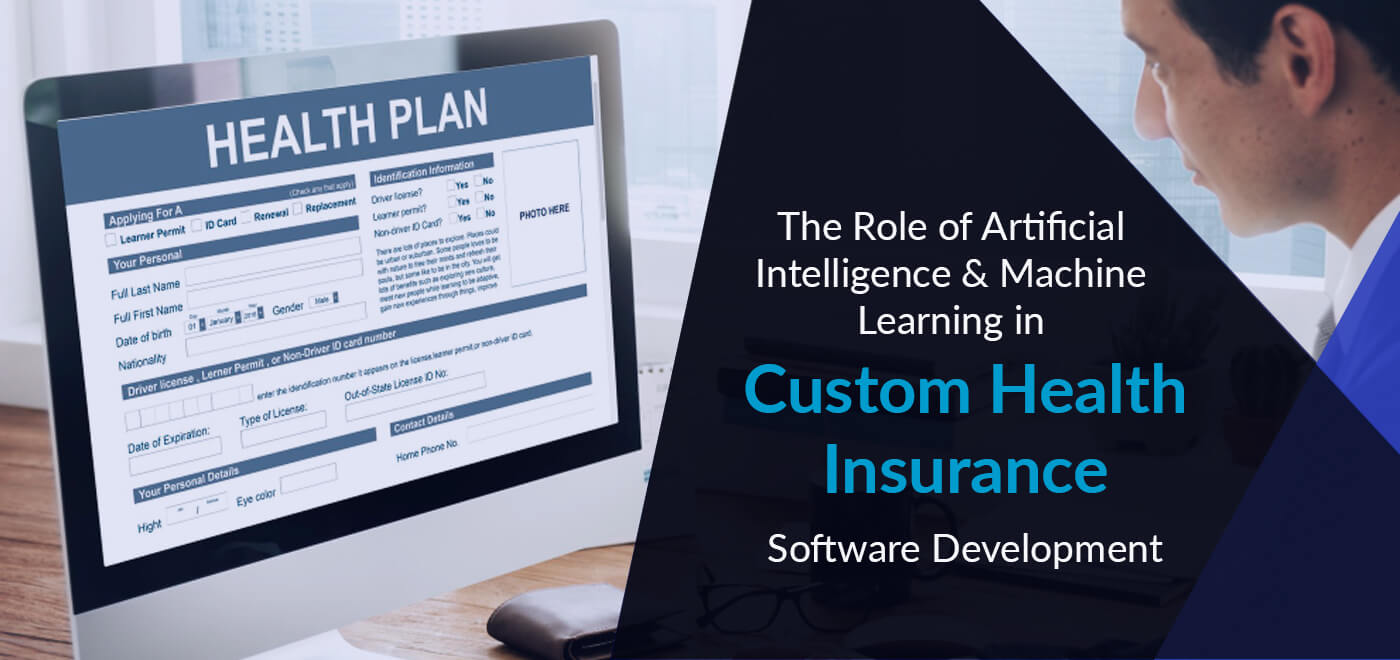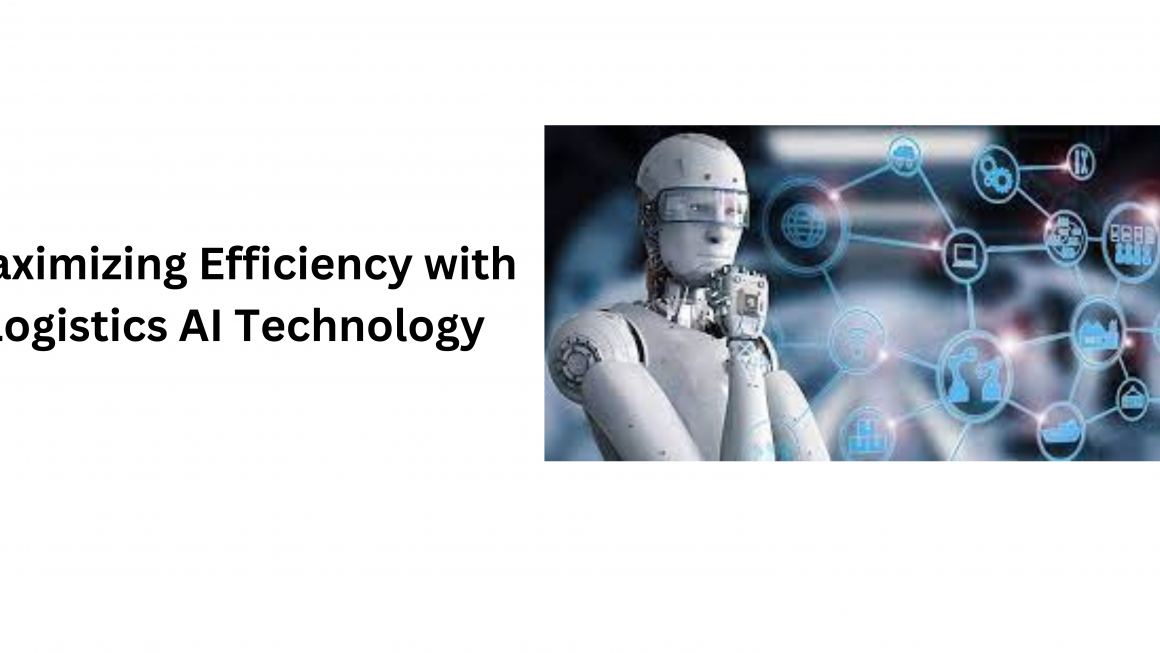In this post, we’ll examine the role of AI in the process of custom health insurance software development. We will assess how it could help both policyholders and insurers. Let’s begin
How do we improve healthcare to be more customized and efficient? This is the answer to advances in machine learning and artificial intelligence.
Artificial intelligence development services have transformed a variety of sectors, and healthcare is one of them. With the aid of AI, healthcare professionals can provide personalized treatment for each patient. This is something that was previously unattainable.
In the field of insurance for health, artificial intelligence could play an important role in the development of custom software. These tools can assist insurers in analyzing patient data more efficiently. It can boost accuracy, which can lead to better decision-making as well as personalized insurance policies.
AI Machine Learning and AI in the field of Healthcare
Artificial Intelligence (AI) and Machine Learning (ML) are revolutionizing healthcare. With the aid of top artificial intelligence companies, healthcare professionals are now able to provide more precise services to patients. Machine learning technology has the capability of analyzing huge quantities of data. It offers insights that assist nurses and doctors in making better decisions.
One of the main advantages that come from AI is its potential to improve outcomes for patients. It can help in analyzing the data that come from medical records as well as medical imaging. Machine-learning algorithms can detect patterns and anticipate outcomes. This enables healthcare providers to intervene earlier and offer better-targeted treatments. Eventually leading to better outcomes for patients.
Furthermore, AI and ML can assist healthcare institutions in reducing their expenses and improving efficiency. By automating repetitive tasks, like data entry and administration, health professionals are able to focus on the care of patients. Machine learning algorithms assist in identifying patients who may be at risk of re-hospitalization or complications. This allows healthcare professionals to intervene earlier, thereby avoiding expensive hospitalizations.
But, there are difficulties associated with the implementation of AI as well as ML for healthcare. One of the major challenges is to ensure the security and privacy of data from patients. Healthcare providers must ensure that the data of patients are secured and that algorithms are clear and understandable.
In the end, artificial intelligence and ML have the potential to transform healthcare and enhance the outcomes of patients. As top AI firms continue to come up with innovative solutions, healthcare providers will be able to provide better and more precise medical care for their patients.
Benefits Of Using AI And Machine Learning In Custom Health Insurance Software Development
The health industry is fast growing, and so is the insurance industry. Health insurance companies are searching for ways to improve their service and offer more personalized service for their customers. AI and ML are emerging as effective tools that can assist health insurance providers in meeting the needs of their clients.
Improved Efficiency. AI, as well as ML, can help automate a variety of processes that are involved in health insurance software development, including the entry of data, analysis, and even processing of claims. This could help insurance companies reduce time and money, decrease errors, and increase efficiency overall.
Personalized Care. AI and ML are able to analyze huge amounts of data from a variety of sources. This includes EHRs, electronic medical records (EHRs), and provides specific care to patients. This could help insurance companies find patients who are at risk and offer them proactive treatment, which can lower the total cost of healthcare.
Fraud Detection. Fraud in the health insurance industry is a serious issue that costs millions of dollars to the insurance industry every year. AI, as well as ML, can aid in detecting fraudulent claims by studying patterns and identifying any anomalies in the claims information. This will help insurance companies save money as well as improve their overall credibility in the business.
Improved Customer Experience. AI and ML can assist insurance companies in offering better customer service by analyzing the data of customers and making individualized suggestions. This will help insurance companies customize their offerings to meet the individual requirements of customers, thereby increasing overall satisfaction.
Predictive Analytics. Artificial intelligence and ML are able to analyze huge amounts of data in order to provide predictive analytics, like forecasting patient outcomes and identifying patients at risk. This will help insurance companies make more informed choices that reduce costs and improve the quality of life for patients.
Cost Savings. Artificial intelligence can aid insurance companies in reducing costs by automating different processes and optimizing the allocation of resources. This will allow insurance companies to offer lower-cost services to their customers while increasing accessibility.
Improved Decision-Making. AI and ML will provide insurance providers with analytics and data in real time, which allows them to make better choices. This could help insurance companies recognize trends, enhance processes, and give better service to their customers.
Better Risk Management. It can assist insurance companies recognize and manage risks more efficiently. This will help insurance companies cut down on losses and boost overall profitability while ensuring the long-term viability of the industry.
Improved Health Outcomes. Artificial intelligence can assist insurance companies in determining patients at risk and offer them proactive treatment, thereby improving general health results. This could help insurance companies cut the overall costs of treatment and increase satisfaction with their patients.
Competitive Advantage. AI and ML could provide insurance companies with competitive advantages by allowing them to offer better and more efficient services to their customers. This could help insurance companies to retain and attract clients, improving the overall efficiency and sustainability of their business.
Thus, artificial intelligence and machine learning have many advantages for health insurance software development. Insurance companies that utilize these technologies can increase efficiency, offer personalized services as well as detect fraud. It can enhance the customer experience, offer predictive analytics that saves money and improves decision-making. The technology also assists in managing risks, enhancing health outcomes, and gaining competitive advantages. As the healthcare industry continues to change, it is vital for insurance companies to utilize these new technologies. It can help you provide superior services to their customers and ensure sustainability for the long term.
Customization Of Insurance Plans Based On Individual Needs And Risk Factors
The ability to customize insurance plans according to individual requirements and risk factors is now feasible with the help of AI as well as machine learning. This revolutionary technology is revolutionizing the way that insurance companies conduct business. With the help of AI or machine learning techniques, companies are able to provide personalized plans to their clients.
To accomplish this, insurance firms work with companies that specialize in developing custom software to create algorithms that study information from various sources. The data includes information on the individual’s age, health lifestyle, as well as other risk elements. Based on this information, the algorithm will suggest insurance plans specific to the needs of each individual.
AI Machine learning and AI could aid insurance companies in finding out if there is a risk of fraud. Through the analysis of data from a variety of sources, the algorithm is able to identify patterns that could indicate fraud. This helps insurance companies save money as well as reduce the chance of being a victim.
Alongside customization, in addition to fraud detection, AI, as well as machine learning, could assist insurance companies in enhancing their customer service. By analyzing information from customer interactions, the algorithm is able to identify areas where customer service could be improved. This could help insurance companies in providing superior service to their customers and increase satisfaction with their customers.
In the end, the use in the field of AI or machine learning for the insurance industry is a game changer. It lets insurance companies offer individualized plans, recognize fraud, and provide better customer service. Working with custom software development company experts, insurance companies can benefit from this technology to remain ahead of the curve in a constantly changing industry.
Automating The Process Of Claiming By Utilizing AI As Well As Machine Learning
The process of settling claims is a crucial aspect of the insurance industry. In addition, AI machines and AI have made it more efficient and simplified. Custom software development has been a major factor in this process of transformation.
AI machines and algorithms for machine learning can analyze huge amounts of data, including historical claims information, to detect patterns and forecast outcomes. This helps insurers make more precise decisions on claims, decreasing the chance of fraud and making sure that the customers receive fair compensation.
One of the main advantages associated with AI or machine learning during the process of claiming is the capability to automate a variety of tasks previously performed manually. This includes the entry of data, processing documents, and even making decisions. This not only reduces time but also decreases the risk of inconsistencies and errors.
Services for custom development have proven crucial in the creation of AI as well as machine learning solutions for the industry of insurance. These solutions are adapted to meet the needs of insurance companies by taking into account variables such as the kind of claims that are processed and the number of claims processed, as well as the complex nature of the process.
One of the major challenges to using AI or machine learning in the process of settling claims is the requirement for precise information. This is a requirement for information from many sources, such as the policyholder’s details, claim history, and other data sources, like weather information. Custom software development can assist insurers in collecting and integrating the data, making sure that the information is correct and current.
Another issue is making sure it is that AI machines and algorithms for machine learning are clear and understandable. This is especially important for the insurance industry, where decisions about claims could have a major impact on the policyholders. Custom software development services may assist insurers in designing algorithms that are clear and clear in their explanations of decision-making.
AI, as well as machine learning, may assist insurers in identifying instances of fraud. Through the analysis of data from multiple sources, such as public records and social media, algorithms can detect patterns that could indicate fraud. This helps insurers to avoid fraudulent claims and help reduce the amount of losses.
Custom software development services will also aid insurers in implementing chatbots and other tools for conversational AI to enhance customer service. Chatbots can respond to common questions as well as provide status updates on the status of claims and aid customers with filing claims. This does not just increase the customer experience but also lessens the workload of claims adjusters.
In the end, AI and machine learning will help insurers improve their risk assessment process. By analyzing information from various sources, such as the social web as well as IoT devices, AI algorithms can determine the potential risk and provide insurance companies with information about the probability of making claims. This will help insurers estimate the cost of policies more precisely and lower their risk overall.
Therefore, AI and machine learning have revolutionized the process of claiming for the insurer. The development of custom software has played an important part in establishing solutions that meet the needs of insurers. Machine learning and AI have helped make the process of claiming more efficient, accurate, and transparent. They also help insurers avoid fraud, improve their customer service, and lower their risk overall. As technology advances, we will likely reap even more benefits for both policyholders and insurers alike.
Predictive Analytics To Aid In Analysis Of Risk And Fraud Detection
Predictive analytics is an effective tool that helps companies and organizations to identify risks and fraudulent activities. Utilizing AI or machine learning, businesses will gain valuable insights into their customers’ behavior. It also offers other information which can be utilized to improve the risk assessment process and detect fraud.
Custom healthcare software development is one area in which predictive analytics could prove helpful. Through the analysis of the patient’s data as well as other pertinent data, healthcare professionals can detect potential risks. This allows them to take proactive steps to avoid diseases and other health problems.
Apart from healthcare and other fields, predictive analytics can be applied to a range of other sectors. This includes retail, finance manufacturing, and even manufacturing. By analyzing data from many sources, businesses can obtain a complete view of the behavior of customers. This can help them pinpoint possible fraud and risk.
Predictive analytics has the ability to detect patterns and trends among large amounts of data. By analyzing historical records using machine learning algorithms, companies can detect risks or fraud before it occurs. It allows them to take preventive steps against any possible adverse consequences.
Another advantage that predictive analytics offer is the ability to boost the process of making decisions. Predictive analytics can assist businesses in making better choices about everything. Right from the development of products and marketing plans, everything gets sorted without any hassle.
Predictive analytics presents several challenges when used for risk evaluation and fraud detection, the major one being data quality issues; for successful predictive analytics to occur, it requires accurate, precise information that’s up-to-date and precise in its data presentation.
Another problem lies in the complexities of algorithms that are used to calculate predictive statistics. To be efficient, these algorithms must be meticulously designed and tested to ensure they’re precise and reliable.
Despite these issues, predictive analytics is an extremely effective tool that can assist organizations. It can enhance risk assessment and fraud detection. AI or machine learning provides businesses with invaluable insights into consumer behaviors. It also provides information that will allow them to improve quality decisions while mitigating risk and fraud.
Predictive analytics is an indispensable tool that can enhance risk analysis processes. It can detect fraud across a spectrum of sectors ranging from healthcare, retail, finance, and manufacturing. Through data gathering from numerous sources and analysis with machine-learning algorithms, companies can detect risks or fraud.
This can be done before it occurs, and take proactive measures to mitigate it before any risk exists. An approach made even more powerful by having high-quality information with reliable algorithms designed specifically to do just this task. But for predictive analytics to be truly successful, it requires top-quality information with precise algorithms designed.
Challenges And Limitations Of Using AI And Machine Learning In Healthcare
AI and machine-learning technologies are revolutionizing healthcare by improving care quality while cutting costs, yet there remain numerous issues and restrictions which need to be overcome before adoption can become widespread.
One of the key challenges associated with healthcare systems today is the lack of data sharing and interoperability among them. Making it more challenging for AI and machine learning systems to analyze large amounts of data efficiently. It can be daunting to access it when they’re required for analysis or accessing large volumes.
Another problem is the quality of the data. Healthcare data can be incomplete and inaccurate or biased, leading to inaccurate diagnoses and predictions.
Security and privacy concerns are another major issue. Healthcare data is incredibly sensitive and private. There is a possibility of data theft or breach when proper security measures are not put in place.
AI machines and algorithms for machine learning could create discrimination and inequalities within healthcare. For instance, if data used for training an algorithm has a bias, it could result in discriminatory or biased outcomes.
There is also a dearth of highly skilled professionals who are able to design and apply AI and machine learning solutions for healthcare. This has resulted in dependence on healthcare MSP companies which are expensive and might not offer the best solutions.
There are also ethical concerns regarding using AI as well as machine learning in the field of healthcare. There is a risk that these tools can lead to the loss of feelings of empathy in healthcare for patients.
So, AI and machine learning can transform healthcare significantly. But there are a number of issues and limitations that have to be resolved. This includes data sharing and interoperability, quality of data security, and privacy. Also, it must take care of biases and inequalities, gaps in skills, as well as ethical issues. Healthcare organizations must take into account these aspects prior to adopting AI and machine learning tools.
Final Thoughts
So, the significance of machine intelligence and artificial intelligence in the healthcare domain is not overstated. They are able to analyze huge quantities of data. It also spots patterns and helps in forecasting. They are revolutionizing healthcare by providing more individualized and effective treatment for patients. Health insurance software customized to your needs which incorporates AI or machine learning, will assist insurers. It will assist them in better understanding their client’s needs. Also, it will offer customized plans for insurance and enhance the overall experience for customers. As the adoption of these new technologies expands, we will likely discover more and better and more creative solutions. This can change the way we think about insurance and healthcare.




